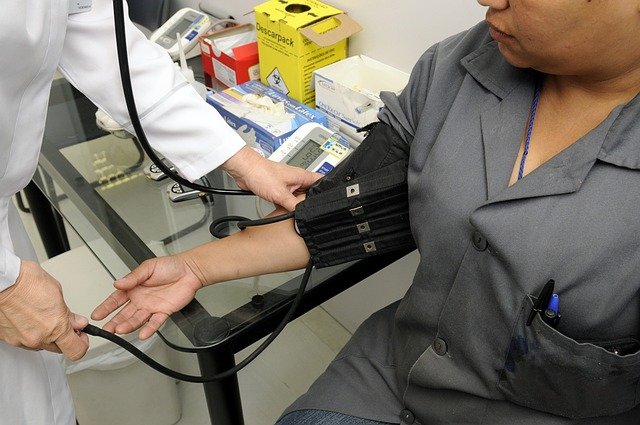Learn About Common Indicators Linked With Kidney Cancer Risk
Kidney cancer is a serious health concern that affects thousands of individuals each year. Understanding the risk factors and common indicators associated with this disease is crucial for early detection and improved outcomes. This article delves into the key aspects of kidney cancer, including its causes, prevention tips, and the signs and symptoms to watch out for.

What are the Common Indicators Linked With Kidney Cancer Risk?
Several factors can increase an individual’s risk of developing kidney cancer. Some of the most common indicators include:
-
Age: The risk of kidney cancer increases with age, with most cases occurring in people over 50.
-
Smoking: Tobacco use is a significant risk factor for kidney cancer, with smokers having a higher chance of developing the disease compared to non-smokers.
-
Obesity: Excess body weight has been linked to an increased risk of kidney cancer, particularly in women.
-
High blood pressure: Chronic hypertension can damage kidney tissues and increase the likelihood of cancer development.
-
Family history: Having a close relative with kidney cancer may indicate a genetic predisposition to the disease.
-
Certain medical conditions: Conditions such as chronic kidney disease, Von Hippel-Lindau syndrome, and tuberous sclerosis complex can elevate kidney cancer risk.
What are the Primary Causes of Kidney Cancer?
While the exact causes of kidney cancer are not fully understood, several factors are believed to contribute to its development:
-
Genetic mutations: Changes in certain genes can lead to uncontrolled cell growth in the kidneys.
-
Environmental toxins: Exposure to certain chemicals, such as cadmium and trichloroethylene, may increase the risk of kidney cancer.
-
Chronic kidney diseases: Long-term kidney conditions can create an environment conducive to cancer development.
-
Hormonal factors: Some studies suggest that hormonal imbalances may play a role in kidney cancer formation.
-
Radiation exposure: High doses of radiation, such as those used in certain medical treatments, may increase the risk of kidney cancer.
What are Effective Kidney Cancer Prevention Tips?
While some risk factors for kidney cancer are beyond our control, there are several steps individuals can take to reduce their risk:
-
Quit smoking: Stopping tobacco use is one of the most effective ways to lower kidney cancer risk.
-
Maintain a healthy weight: Achieving and maintaining a healthy body mass index (BMI) can significantly reduce the risk of kidney cancer.
-
Control blood pressure: Regular monitoring and management of hypertension can help protect kidney health.
-
Stay hydrated: Drinking plenty of water may help flush toxins from the kidneys and reduce cancer risk.
-
Eat a balanced diet: Consuming a variety of fruits, vegetables, and whole grains while limiting processed foods can support overall kidney health.
-
Exercise regularly: Engaging in physical activity can help maintain a healthy weight and improve overall well-being.
What are the Common Kidney Cancer Signs to Watch For?
Early-stage kidney cancer often doesn’t produce noticeable symptoms. However, as the disease progresses, some signs may become apparent:
-
Blood in urine: This is one of the most common signs of kidney cancer and should never be ignored.
-
Lower back pain: Persistent pain on one side of the lower back may indicate a kidney tumor.
-
Unexplained weight loss: Sudden, unintentional weight loss can be a sign of various cancers, including kidney cancer.
-
Fatigue: Feeling excessively tired or weak without apparent cause may be a symptom of kidney cancer.
-
Anemia: A low red blood cell count can result from kidney cancer and may cause fatigue and weakness.
What Kidney Cancer Symptoms Require Immediate Medical Attention?
While some kidney cancer symptoms may be subtle, certain signs warrant immediate medical evaluation:
-
Severe abdominal or flank pain: Intense pain in the side or abdomen that doesn’t subside could indicate a large kidney tumor.
-
Fever not associated with an infection: Persistent fever without an apparent cause may be a sign of kidney cancer.
-
Swelling in the legs or ankles: This could indicate that the cancer is affecting kidney function or blocking blood flow.
-
A palpable mass in the abdomen: In some cases, a large kidney tumor may be felt as a lump in the abdomen.
-
High blood pressure that is difficult to control: Sudden onset of hypertension or difficulty managing existing high blood pressure could be related to kidney cancer.
Understanding the common indicators linked with kidney cancer risk is crucial for early detection and prevention. By recognizing the potential causes, implementing prevention strategies, and being aware of the signs and symptoms, individuals can take proactive steps to protect their kidney health. If you experience any concerning symptoms or have multiple risk factors for kidney cancer, it’s essential to consult with a healthcare professional for proper evaluation and guidance.
This article is for informational purposes only and should not be considered medical advice. Please consult a qualified healthcare professional for personalized guidance and treatment.




